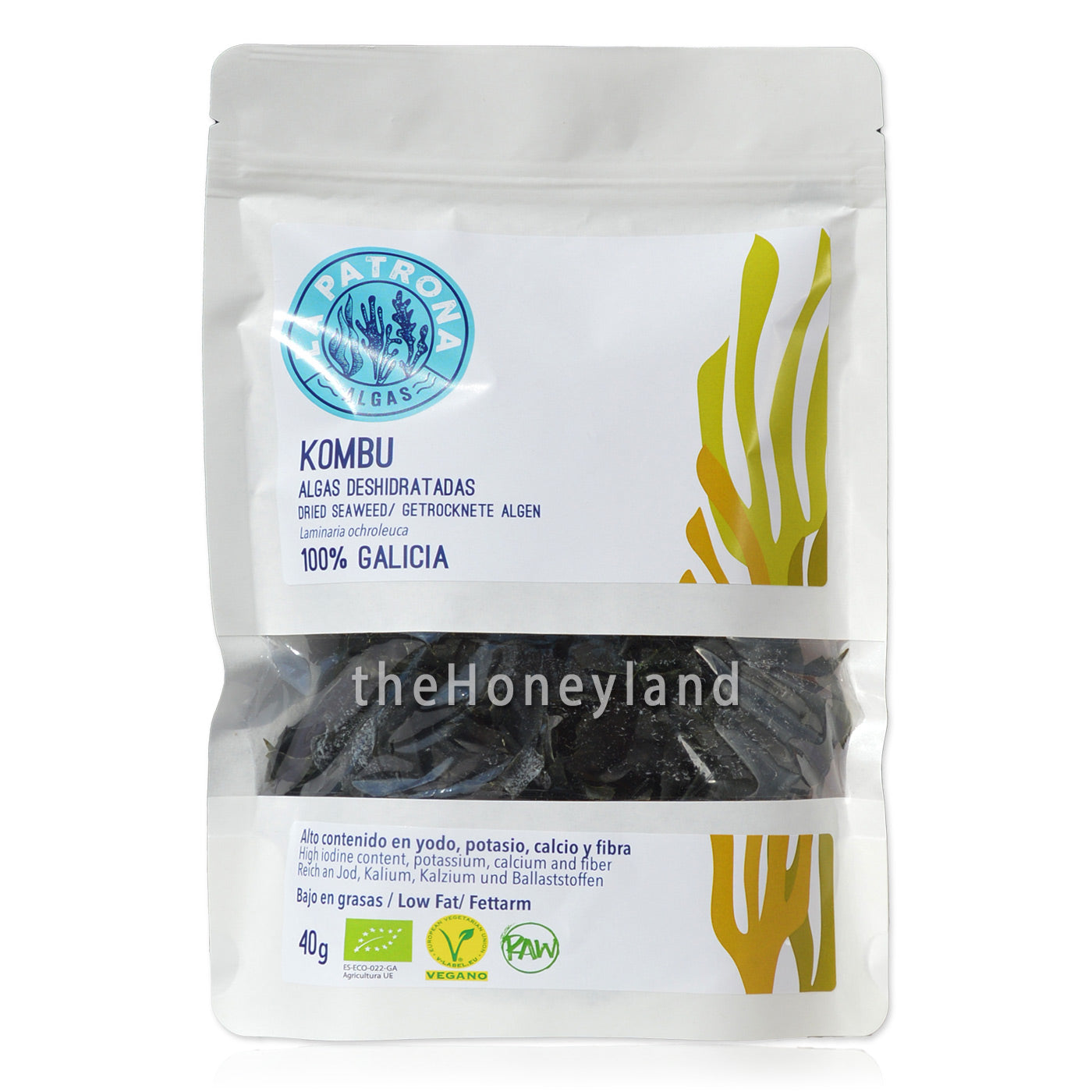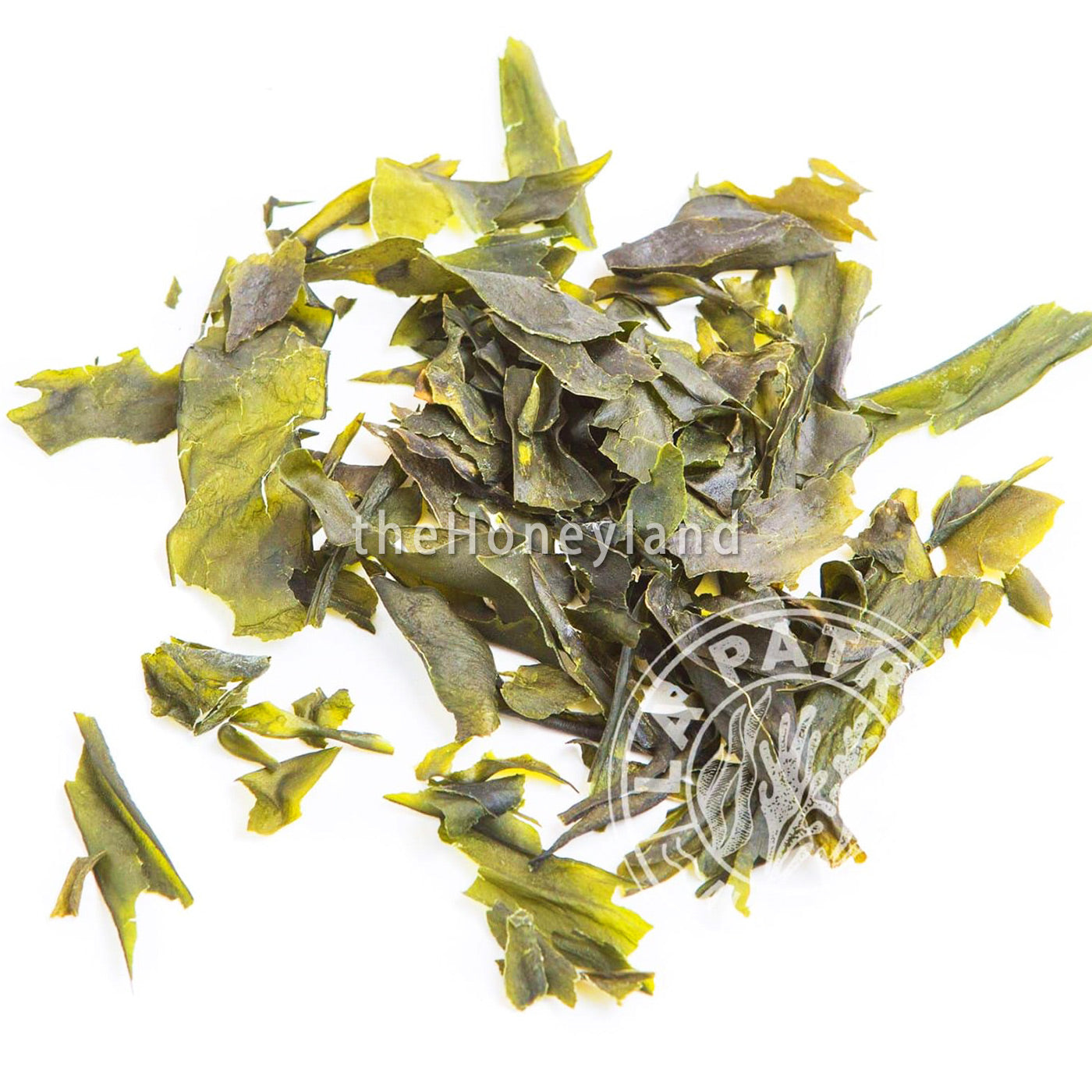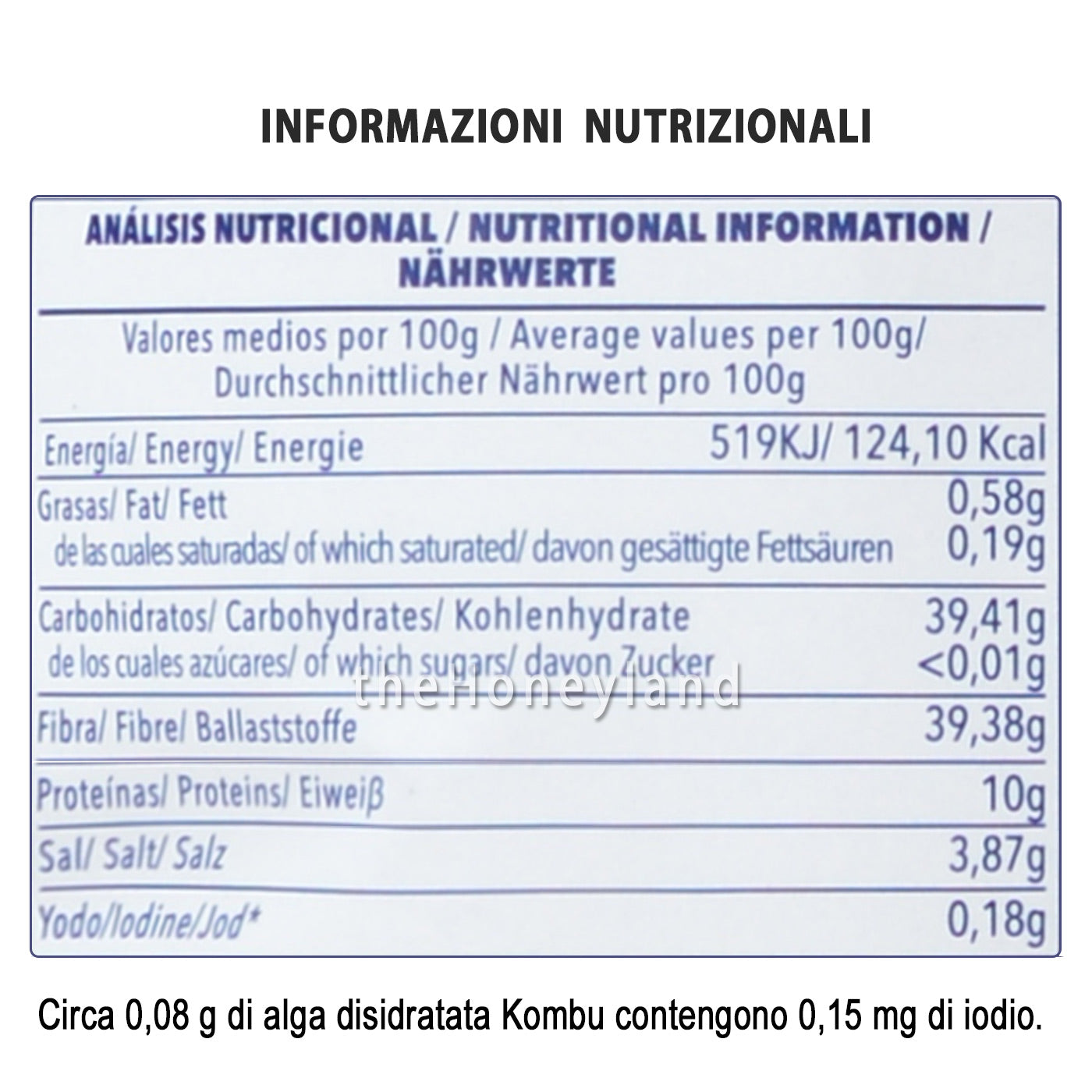Description
Instructions
BENEFITS*
It is appreciated as a source of iodine, necessary to produce the two thyroid hormones key to controlling metabolism.
It also has a satiating effect thanks to its soluble fiber content, which is why it can be an excellent support in slimming diets.
Recommended dose : due to the high iodine content, between 1 and 2 g of dried kombu seaweed per week, depending on personal needs.
* For particular situations or in case of pathologies, always contact your trusted specialist to evaluate the most suitable intake and quantities. The information provided on this site is of a general nature and cannot under any circumstances replace the advice of a doctor (i.e. a person legally authorized to practice).
Warnings : in case of pathologies, especially thyroid ones, consult your doctor before taking Kombu seaweed. Not recommended during pregnancy and in children under 12 years of age.
IN THE KITCHEN
Being an excellent natural flavoring, Kombu seaweed can be used in various ways:
- vegetable broth - can be used as a vegetable stock cube. You need around 10g of kombu for every liter of water.
Kombu is a precious ingredient for the preparation of dashi broth, a typical dish of Japanese cuisine. - Legumes: soaking the kombu seaweed with the legumes softens the skin. Added instead during cooking to add flavor naturally.
- Soups and soups - to flavor soups, stews, vegetable dishes, add lalga kombu together with the cooking water
Nutritional facts
| per 100 g | |
|---|---|
| Energy | 519 kj / 124,1 kcal |
| Fats | 0,58 g |
| Saturated | 0,9 g |
| Carboidrati | 39,41 g |
| from which Sugars | <0,01 g |
| Proteins | 10 g |
| Salt | 3,87 g |
| Fibers | 39,38 g |
| Iodine | 0,18 g |
Recycle & Enviroment
Check the regulations of your local municipality.







